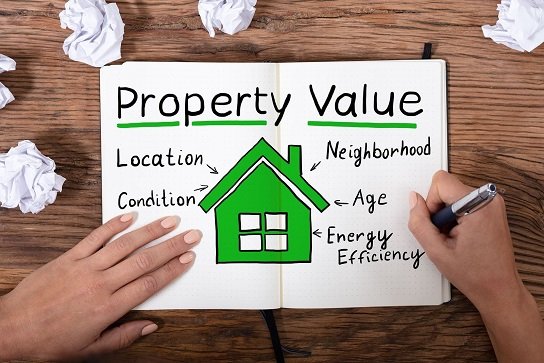In the ever-evolving realm of real estate, one fundamental aspect remains constant: property valuation. It’s the linchpin upon which all real estate transactions hinge, from buying a dream home to securing financing for commercial ventures. The significance of understanding the intricate web of factors influencing property valuation cannot be overstated. In this comprehensive guide, we delve into the world of property valuation, shedding light on the critical factors that impact it and providing real estate agencies with the tools to navigate this complex landscape effectively.
The Basics of Property Valuation
Before we embark on our journey through the intricacies of property valuation, we must grasp the fundamentals. Property valuation is the art and science of determining the fair market value of a property. Certified appraisers and valuers play a pivotal role in this process, using various methods and approaches to provide an accurate assessment.
Location, Location, Location
“Location, location, location” is the mantra in real estate, and it holds when it comes to property valuation. The geographical context in which a property resides can significantly influence its value. Factors such as proximity to essential amenities, schools, hospitals, and employment hubs all play a role. Micro-level factors like neighborhood reputation and safety can substantially impact even within a given location.
Property Size and Features
Property size and its features are also paramount in determining value. The size of a property often correlates directly with its price, but the unique features and upgrades can set it apart. From gourmet kitchens to luxurious swimming pools, these aspects can add substantial value. Striking the right balance between size and features is an art that experienced real estate professionals master.
Property Condition and Maintenance
A property’s condition is a significant driver of its valuation. Well-maintained homes and commercial spaces command higher prices in the market. Identifying necessary maintenance and repair needs is crucial for agencies seeking to maximize property value. Implementing strategic improvements and maintenance measures can lead to a significant boost in property value.
Comparable Sales (Comps)
Comparable sales data, or “comps,” is a cornerstone of property valuation. Understanding how to identify and analyze properties similar to the one in question is vital. However, making accurate adjustments for differences between the comps and the subject property is equally important. This ensures a more precise valuation.
Market Conditions
The dynamic nature of real estate markets makes it imperative to comprehend how market conditions affect property values. Supply and demand, interest rates, and broader economic trends all have their say. Real estate agencies must also be attuned to seasonal fluctuations, which can significantly sway property valuation.
Neighborhood and Community
Beyond the property itself, the surrounding neighborhood and community can significantly influence value. Desirability, reputation, nearby amenities, schools, and public services all play a part. A neighborhood’s stability and growth potential are also crucial factors to consider when valuing a property.
Property History and Ownership
The history of a property, including past ownership changes and any renovations or improvements, can profoundly impact valuation. Agencies must investigate these aspects thoroughly to arrive at an accurate assessment. Additionally, legal and title issues can lurk in the shadows, affecting property value.
Environmental Factors
Environmental considerations have become increasingly important in property valuation. Pollution, natural hazards, and environmental assessments all play a role in determining a property’s worth. Mitigating risks associated with these factors is essential for both buyer and seller.
Economic and Regulatory Factors
The world of real estate is not insulated from economic trends and government policies. Understanding how these factors affect valuation is crucial. Zoning regulations, land use restrictions, and permits can also significantly impact property value, making it vital for real estate agencies to stay informed and adaptable.
Emerging Technologies in Valuation
As technology continues to advance, it is reshaping property valuation. Data analytics, artificial intelligence, and machine learning are now integral. Real estate agencies can leverage these advancements to provide more accurate valuations and stay ahead in a competitive market.
Conclusion
In this guide, we’ve navigated the multifaceted world of property valuation, shedding light on the factors that influence it. The art of property valuation is a complex endeavor that demands a deep understanding of a property’s many facets. For real estate agencies, prioritizing accurate valuations is not just a necessity but a competitive advantage. In an ever-changing real estate landscape, mastering the factors that affect property valuation is key to success. It’s a journey filled with challenges and opportunities, and with the right knowledge and tools, real estate agencies can thrive in this dynamic industry.
